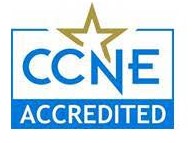Why Study Nursing
Nurses have a significant impact in their careers by entering the workforce quickly, enjoying job stability, and working in a respected profession with a variety of specialties. The average annual salary for nurses in the U.S. exceeds $50,000, and the U.S. Bureau of Labor Statistics (BLS) projects a 6% job growth rate in the nursing field by 2033, indicating a promising outlook for those considering a nursing career.
In nursing, you have the opportunity to specialize in areas such as pediatrics, focusing exclusively on children, or working as a surgical nurse in the operating room. Nurses can find fulfilling roles in various settings, including hospitals, clinics, schools, correctional facilities, government agencies, large corporations, and community nursing.
Austin Peay State University (APSU) School of Nursing offers two educational programs: The Bachelor of Science in Nursing (BSN), which includes the RN to BSN Completion concentration for licensed Associate Degree RNs, and the Master of Science in Nursing (MSN). The MSN program allows students to choose from three specialties: Family Nurse Practitioner, Psychiatric Mental Health Nurse Practitioner, or Nursing Education. Both the RN to BSN Completion and Graduate Nursing programs are available online, providing flexibility for students.
With 23 full-time faculty members, all holding master's or doctoral degrees in their nursing specialties, APSU School of Nursing fosters a culture of civility and mentorship. The director, staff, and faculty serve as role models, guiding students in their professional growth based on their educational level and practice roles. A supportive, positive, and collaborative environment is a hallmark of the school.
The BSN program at APSU is accredited by the Commission of Collegiate Nursing Education and approved by the Tennessee Department of Health Board of Nursing . The School admits students twice a year for the BSN (Pre-Licensure) Nursing Major and five times a year for the RN to BSN Concentration. The BSN (Pre-Licensure) Nursing Major proudly features an impressive five-year average NCLEX pass rate of > 95%.
For those who love helping others in healthcare, nursing is a fulfilling and exciting career. With access to over 45 clinical sites for student experiences and more than 175 scholarships awarded annually, APSU School of Nursing is committed to supporting aspiring nurses every step of the way.

What will I learn
- How to be a nurse generalist.
- Preparation for advanced roles in healthcare needs while cultivating an appreciation of diversity and understanding of the national and global healthcare environments.
- Develop leadership skills in nursing and healthcare.
- Develop critical inquiry, skills, and values for life and practice in a global society/
Program Information
Professional Licensure Disclosure
Students should be aware that licensure and certification requirements vary from state to state and are subject to change. Licensing agencies or boards also may have requirements in addition to an earned degree. APSU recommends that students who are not Tennessee residents or who plan to seek licensure or certification outside the state of Tennessee contact the appropriate licensing agency or board before they enroll in an academic program designed to lead to licensure or certification and discuss their plans with an advisor.
Please visit the Professional Licensure Disclosure webpage to review specific licensure information for your state and academic program.

